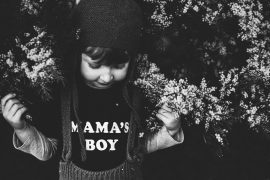By Lou Marx
Remember being told, ‘You can do or be anything you want in life’?
I remember hearing that a lot growing up – not necessarily from my parents, but there seemed to be a cultural frenzy – maybe from Hollywood, or from teachers, maybe even from characters in story books – I don’t know, but growing up in the 90s there seemed to be a self-help movement that encouraged possibilities and I recollect feeling inspired by that.
The thing is, as children we all believe we’re capable of great things. There’s a curious spirit in all of us hungry to expand into our greatest potential. But then something happens…life kicks in. And all of a sudden, you’re left with the fears of ‘What if?” which eventually leads to a chance of failure which ultimately leads to inaction and, in the very worst case, settling for safe and conforming for comfort.
This fear of trying something and not succeeding is what cripples us the most. It’s what keeps our spirit suffocated and our ability to express ourselves at the deepest level completely stifled.
We’re born as free agents, only to become birds with clipped wings – fear preventing us to fly.
The reality is, yes, we may have been told that we could do or be anything we want in life, but what examples did we see of this growing up from our role models?
For those of us who saw the people we loved and trusted playing it safe, how on earth could we be expected to go beyond the barriers they couldn’t?
As babies, we’re a blank canvas, but slowly over time we start to absorb the fears of those around us.
Our perception of risk, money, education and what it takes to live a good and earnest life, is shaped by what society places value on at the time.
And don’t get me wrong, the majority of our caregivers and role models only wanted the best for us, just as we do for our children, but if the focus was on being liked – in other words conforming to the ideals around us such as speak only when being spoken to, and be seen and not heard – then our inner self starts to recognise that we must compromise what we want in order to satisfy the norm and fit in with others. That is our best chance of being accepted, and as a herd species, being accepted is hard wired into us at a very primal level – it was once the difference between life and death. Hence why it takes a lot to go against the grain.
The importance of conforming is further reiterated when value is placed on getting a good education in order to get a good career in order to have enough money, in order to pay a mortgage which will support a family so you can ultimately live a nice, tidy, happy life.











